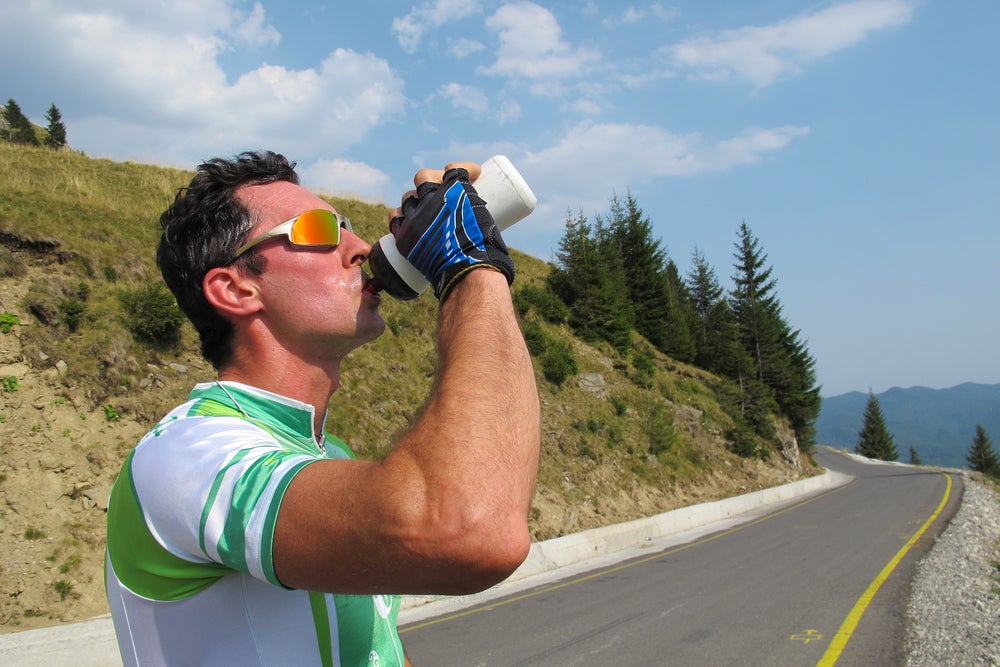Nutrition Q&A: How Cooler Weather Affects Your Hydration Needs

Photo: <a href="http://www.shutterstock.com">www.shutterstock.com</a>
Q: How are my hydration needs different in winter versus summer?
A: Many athletes I work with are surprised to learn that their sweat rate does not change just because the temperature drops. This is because sweat rate is determined by numerous factors, including fitness level, pace and acclimatization, not just ambient temperature. I actually find that athletes are just as likely to become dehydrated during winter workouts.
It stems from several factors. First, athletes sweat less and feel less thirsty during wintertime and winter workouts, so they’re more likely to neglect their hydration needs. Second, many overdress for cold-weather exercise sessions—either excitedly wearing every layer of new gear or so sick of being cold all day that they overdress just to warm up. Third, when we exercise indoors we sweat more than outdoors, so it becomes easy to get behind on hydration during long indoor runs and trainer rides.
To avoid dehydration this winter (and anytime), drink about half of your body weight in fluid ounces daily (e.g. 60 ounces for a 120-pound triathlete), drink 16 ounces of fluid two hours prior to your workout and another 8–12 ounces about 10 minutes before you begin. During longer sessions, replace just less than you lose through sweat. Check your outdoor and indoor sweat rates by noting your body weight pre- and post-workout. For every pound lost during a workout you should have consumed an additional 16 ounces, so note it and plan that increase for your next workout. Your urine should be almost clear.
Also watch for signs of dehydration, which include dizziness, headache, muscle cramping, sudden increase in heart rate and dry mouth/excessive thirst. If you experience any of these symptoms, either drink fluids immediately or stop your workout for the day, depending on the severity of your symptoms.
RELATED: Hydration Tips For Triathletes
Get the latest in triathlon training, gear, nutrition and news sent straight to your inbox. Sign up for Triathlete’s newsletter.